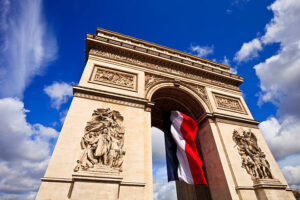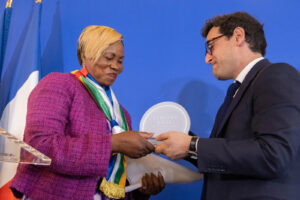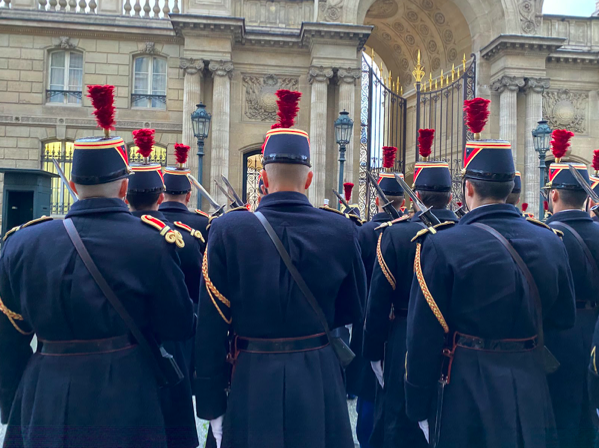The Elysée Palace announced to revive the old tradition of the public ceremony of changing the Republican Guard last month. This tradition was abandoned for almost three decades. On November 7, the French public was able to observe this centuries-old ceremony 27 years after it was opened for public view for the last time under the Chirac Presidency. Despite a few adjustments to the operational performance of the traditional ceremony, the spirit of this event still arouses interest from the public.
According to the press release from the Elysée Palace, the ceremony will now take place every first Tuesday of each month at 09.00 am while the original ceremony from 1909 to 1996 would take place at 07.45 am every morning. Those who are interested in this republican event offering a delicate mix of French history and culture are invited to witness the change of the 1st Infantry Regiment of the Republican Guards with their uniforms, drums, military salutations and trumpets.
Accordingly, the ceremony took place for the second time yesterday, December 5th, which was the first Tuesday of this month marking it as the last one of this year.
The Historical Background
The Republican Guard (Garde Républicaine) was created in 1848 during the Second Republic and became a unit of the National Gendarmerie a year after by a decree of President Napoléon III. It was previously called “Garde de Paris” and it had two infantry regiments and a horse cavalry regiment representing 3400 members. The first infantry regiment which was hosted in Nanterre at the Rachelot barracks included a motorcycle squadron and the Republican Guard Band consisting of a concert band with 80 musicians, a string orchestra of 40 musicians, and a symphony orchestra with 80 musicians.
A multi-skilled unit serving France
The Republican guard has a wide range of duties such as ensuring the follow-up military protocol when foreign heads of state are hosted, carrying out ceremonial duties and performing in official ceremonies like the Bastille Day by the regular sections, and maintaining the safety of major events like Tour de France escorted by Guard motorcyclists. However, ensuring the safety of the state institutions is considered its main objective. The 1st Infantry regiment of the Republican Guard is responsible for the security of the official residency of the French President while the 2nd Infantry regiment is tasked with the security of the official residency of the Prime Minister at Hotel Matignon as well as other prominent monuments such as Palais Bourbon hosting French National Assembly, Palais Luxembourg which the home of French Senate and the Constitutional Council.
“La garde” also serves the French public by contributing to the maintenance of public safety for example by carrying out search operations and performing in tourist hotspots and large gatherings. The operational capabilities and scope of influence of the Republican Guard are not limited to Homeland France. They also impact the “Outre Mer” which consists of French territories across the globe.
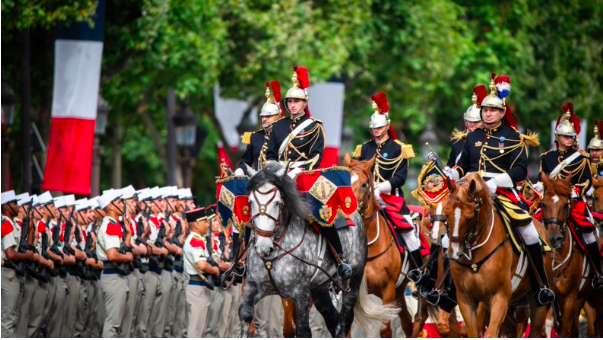
Photo Credit: SIRPA-G-BRI T. Doublet
The Ceremony and Observations
Yesterday’s ceremony had its public audience who gathered in front of the Palace in the early hours despite the cold weather and rain. Footsteps of the 1st Regiment and their trumpets echoed all across the Rue Faubourg even minutes before its scheduled start at 09.00 am. This ceremony which lasted for several minutes ended following the march of the platoons consisting of 16 soldiers where the two section leaders saluted each other and exchanged instructions to take over the 24-hour-long duty of the safety of the Elysée Palace. The new team of the Republican Guard then started their shift following this exchange.
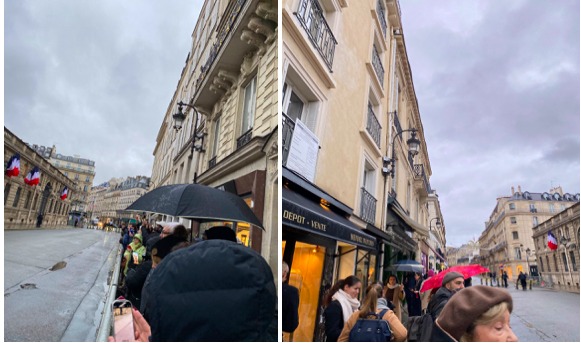
Photo Credit: Yagmur/ CSactu
The importance of reviving traditional habits to serve French prestige as a soft power
French diplomacy can be traced back as early as the 15th century even before the French Republic was founded. France today brands itself as the precursor of diplomacy and multilateralism on reasonable grounds such as acquiring one of the richest histories of diplomatic relations among its neighbors as well as its partners beyond its geopolitical environment.
The position of France as one of the strongest and decisive members of the European Union and NATO does not derive from its economic or military capabilities with its nuclear arsenal as the only EU member state with nuclear weaponry. Instead, its strong dedication to multilateralism and its choice to prefer diplomatic means over “hard power” to ensure global peace and security is the reason the country asserts itself as the “heart of diplomacy”. The French foreign policy today tries to perform this role and function accordingly. The recent move to revive this old republican tradition which includes the public for the ceremony of “relève de la Garde Républicaine” is one of the latest moves to serve this mission.
Being more of a publicity of French institutional culture rather than a diplomatic step, it still aims to grow organic ties and further trust between the French public and the French state. It also creates a unique opportunity to boost solidarity among people through common heritage which functions as the cement of the country embracing universalism. The timing of the decision to open this republican ceremony to the public also matters as the public interest towards state institutions can be challenged by disagreements on ideological grounds and societal tensions fed by divisions and current events at home and abroad.
Attempts to revive old traditions also embody a secondary mission as they represent France on the international level. It is quite convenient in this case where one of the objectives of the Republican Guard is to serve France to represent it on honorary grounds in addition to the security aspect. The prestige of a state and the influence it has over its counterparts contribute to its “soft power” skills which directly impact its capability in diplomacy. Thus, the revival of traditional events and customs like this ceremony manifests the French spirit on diplomatic, political, and social grounds.






